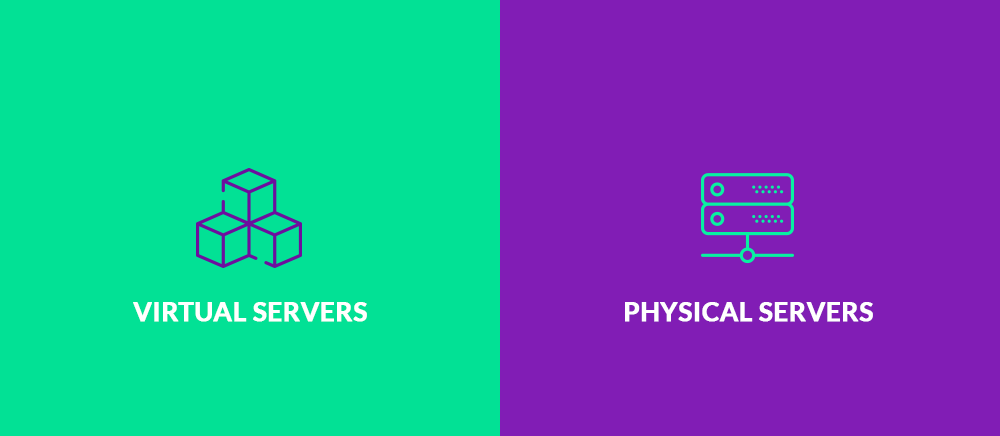Virtual Servers vs. Physical Servers Which is Right for You?

In today`s technology intensive environment, no organization can think of having network or IT related infrastructure without installing server. However, for SMEs the choice of server types may be difficult because of number of different factors that are need of to be considered. With growing popularities of cloud computing, we commonly hear a term virtual server that mimics the capabilities of physical servers. The decision of using virtual server solutions or physical server solutions should be based on your specific business requirements.
Here we have discussed pros and cons of both physical and virtual server solutions to make this daunting task easier for you.
A server is a computer program that provides an environment to computer applications and users to operate. There are several kinds of servers that differ in terms of their abilities and features like web pages access, data storage, email access etc. The most common way of implementing server is a client- server architecture where a single machine in connection with many others, provides various kinds of functionalities such as data sharing, resource management, and computations. A computer that is connected with server works by sending a request to server for specific functions that are then responded back accordingly.
Physical Server Solutions.
A Physical Server is a computing machine that has ability to store and read data. These are equipped with specialized OS that has capabilities to share the resources as per request of the client machines. This machine is placed in server room or any other colocation facility maintained by third party vendors. Few examples of Physical server are file server, print server, applications servers and email server etc.
Pros of Physical Server Solutions.
Physical servers have been part of IT infrastructure since start. They offer significant benefits to the organizations in many situations where
Your IT team is looking for access to dedicated server resource 24/7 basis all year around. Especially when you need to host highly demanding and performance oriented business applications.
You can place physical server at your preferred location or colocation facilities according to your business requirements.
As it will be available and accessible all the times, your team can fully customize and configure server as per your specifications and business requirements.
Cons of Physical Server Solutions.
With these advantages, Physical servers has also following disadvantages
There are certain types of costs associated with physical servers that involve purchase, maintenance and hardware replacements etc.
The Server setup, configuration and maintenance will entirely be responsibility of your staff.
You may need the help from IT support services for configuration, setup and repairs.
Once you reach maximum workloads on server, it may not be easy for you to scale storage as per your requirements without replacing the hardware.
As it is physical machines, it requires colocation space.
Virtual Server Solutions.
Virtual Servers are designed to mimic the functionalities of dedicated server. When there is need of multiple dedicated servers, it can be replaced with virtual servers that are setup on one server. When multiple virtual servers are placed on physical equipment, it allows split of between multiple workloads and improvement in performance and efficiency. Server virtualization is typically used in cloud based environments.
Pros of Virtual Server Solutions.
The popularity of virtual servers is due to following advantages it offers.
Upfront costs are very less, since there is no requirements to purchase hardware.
It will also potentially cost less for configuration and maintenance.
There will be less need of in-house IT team.
You will always have expert assistance available for setup and maintenance.
Increased workload efficiency through consolidation.
It is environmentally friendly technology.
Cons of Virtual Server Solutions.
Like everything else virtual servers also has few disadvantages as discussed here.
With virtual servers, you will have to pay potentially high costs on monthly basis, as compared to higher upfront costs associated with Physical servers.
You are no longer in full control of your physical server, data and infrastructure with applications that are running on them.
There might be issues related to application compatibility that will require expert advice from knowledgeable vendors.
It may not be possible for you to upgrade your agreement plan in small increments that largely depends on vendor policies and service level agreement (SLA) they offer. You may need to put some efforts in finding suitable vendor according to your scalability requirements.
If you are looking for Server Solutions in Dubai , whether it is File Server , Print Server, Application Server , Email Server or Virtual Server Solutions then you may contact us at +971 4 3382 500 for best advice.


















